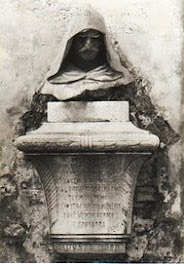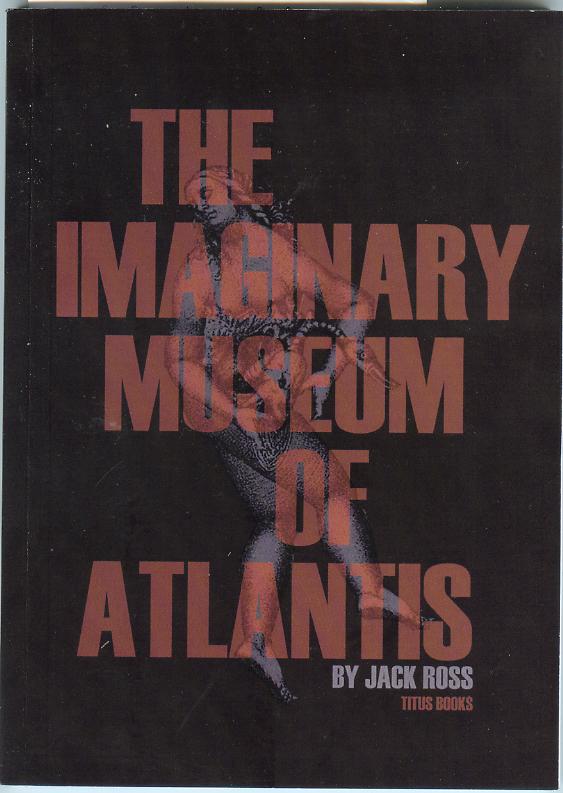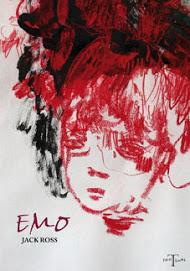Nights w/ Giordano Bruno [G. W.]
Travel – external, internal
The passage of time
The body (sex) sin. confession
The erotic text. – Hermeticism
Reincarnation/ multiplicity – Rebirth (of the author)
relationships – fragmentation of society.
writing and myth (fantasy as vessel for
intellectual thought)
scar – marks/affliction as desire / pain + purpose
– scar as connecting device. / trace
reminder (memory)
deep scar = deep memory.
sleeplessness – immortality of the soul.
wakefulness – paralysis (emotional stagnation)
– Goddardian cynicism – even dreaming is a
(French) tedious search for a solution
The broken promise sequence – mind as self organising
system – embracing chaos – attempt to
rescue the (authors) mind from its own
literary logic.
The great continuum – science, philosophy, art
the alliance against determinism – Elizabethan thought.
Ashley’s discussion at the conflict between
the materialist concept of the
universe as essentially matter and
the spiritualist concept of it as a
being. War between body and mind.
Night = away from the day to day
thought – enclosure
– vessels
– cartesian embryonic
notion of the mind – Ivory tower.
– extreme environments – desert, space station,
Imagine you can’t sleep
Imagine what fantasies,
what bizarre distortions
of your everyday preoccupations
build up inside
Imagine what you find yourself
copying onto sheets of paper
in the long
watches of the night
Imagine these sheets survive,
in no obvious order,
with no clear guide to their subject
matter or significance
Imagine someone finds them
of sufficient interest
to reproduce them, unsorted,
exactly as is
with some perfunctory attempt
to match the Verso pages
[diagrams, fragments of
text, engravings etc.]
with the Recto
[more-or-less straightforward,
albeit disjointed, narrative]
darkness, pole, winter (seasonal alignment)
reading, silence / isolation
“He wasn’t
Interruption – fragmentation happy with
obsession the world”
approach – self portrait with delay
(the futility
confession – the journal – sin of gossip – the
gossip of dissatisfaction)
recovering a lost art – anonymity
the myth of Bruno. Secrecy
Imprisonment in the pathetic. Body, historical
epoch, ‘the thinker’
attempt to savour one’s own history,
body (mind tyranny)
withdrawing into the mind
saints – the paradox of social disregard
for the individual
Dreams – to write is to disappear
Tennis – you can see it as
the competitive instinct or the beautiful
attempt to take cooperation to its
furthest possible extreme.
The prostitution of art – submission of it
to the world of things/sins
getting on with beauty > war between mind +
beauty/body
Forensic meaning – the deserted world
(headlines, pornography, etc.)
Who plays the principal role
in Nights with Giordano Bruno?
It helps to know Auckland
(New Zealand)
to have at least a passing interest
in Romance languages,
numerology,
occult thought,
memory systems
– the stock-in-trade of the Renaissance Magus
G. Bruno,
burnt at the stake
by the Inquisition
in the Hermetic year 1600
The letter “G” has
a special meaning for you
Why else would the 12 sections
of your central narrative
be grouped around it?
GA: “Grafton Amours”
– Guillaume Apollinaire,
Apuleius’ Golden Ass,
Giuseppe Arcimbaldo –
GB: “God-Botherers”
– Giovanni Boccaccio,
Georges Bataille,
Gautama Buddha –
(Search)
failure to act (for)
act of salvage (salvation)
the selfish now
language games (tennis)
Rebellion of the intellect
Postmodernism’s attack on the
written knowledge (fixed reference points)
has only reinforced the barbaric
power of commerce to abuse the
humanities – new historicism
the acceptance of non linear recording
audience of one – artist as ‘individual’
(divided by one)
one divided by one
tabulation (sequence / non-sequence)
> Investigation (singing detective)
(forensic meaning) x files etc.
paranoia
– resisting the density of conventions
of poetry and prose. – attempt to
poeticise as opposed to write poetry.
(death of the author ) Kitsch, irony.
interruption inclusion – world as text
Nights with … G.B. (“whoever that is …”)
“with” stands for non linear character
development. As a visitor he
can appear in different forms
he can be ‘with’ and ‘without’ a
particular characteristic or circumstance.
not, interestingly, Giordano Bruno
G is the seventh letter of the alphabet:
7 days of creation, 7 days of the week,
7 planets, 7 seas, 7 ages of man,
7 sleepers of Ephesus
In Revelation there are 7 stars, 7 candlesticks,
7 trumpets, 7 horns, 7 vials, 7 plagues, a 7-headed monster,
a Lamb with 7 eyes, & 7 spirits before the throne of God
GB are the initials of Giordano Bruno
There is also an (incomplete) section
GD: God.
The Pythagoreans said
7 combined the sacred numbers
3 & 4
There are 4 narratives
dispersed through your principal one
– set at sea,
in outer space,
Antarctica,
and the Desert,
the Verso pages match them against
the 4 elements,
the 4 seasons,
the 4 directions,
the 4 winds,
the 4 humours
He is known as a spirit – pervading
different times and lives. There is no
perfect place/time – Nights
sleeplessness no exit
limbo
insomnia – nocturnalism
… days grow out of nights …
lover – torturer
dreams/sleep – torture
Pearson
search for companionship. sexual, emotional,
intellectual
Maybe Jack should write more directly
about his life. To explore companionship
more directly in his writing.
Unnecessary fictionalising?
At times text is very writerly
(it looses momentum) too clever
deviancy > rebellion of the unconscious
the impotent intellectual
the outsider
Ashley’s hotel room
modern America.
Jacks distance
The unformed voice. State of potentiality.
(exclusivity)
3 x 4 = 12
Hermes Trismegistus (Thrice-Great Hermes)
& the Catalan mystic Ramón Lull
make up the three (with Bruno)
On Hermes, see Frances Yates,
Giordano Bruno & The Hermetic Tradition (1964)
which explains how a series of disjointed, mainly Neo-Platonist
writings (c.2nd century AD) became identified as the authentic
utterances of a pre-Mosaic Egyptian God-king
On Lull, see Frances Yates,
Lull & Bruno (1982)
which explains how a system for codifying & controlling all
On Lull, see Frances Yates,
Lull & Bruno (1982)
which explains how a system for codifying & controlling all
knowledge in a series of interlocking wheels & letters
was revealed to Ramón in a vision in 1274
A Magus controls the world
by organising it into categories
which can be manipulated by white magic
One way to do this is with a Memory Theatre
[see Frances Yates, The Art of Memory (1966)]
The rising sequence GA, GB, GC …
is dogged by a falling … GX, GY, GZ
at the end of each section
The last page should give clues
Is the book finished or unfinished?
Inferno, or Purgatorio?
If it’s a sick book, perhaps it was designed to make you healthy
[J. R.]
was revealed to Ramón in a vision in 1274
A Magus controls the world
by organising it into categories
which can be manipulated by white magic
One way to do this is with a Memory Theatre
[see Frances Yates, The Art of Memory (1966)]
The rising sequence GA, GB, GC …
is dogged by a falling … GX, GY, GZ
at the end of each section
The last page should give clues
Is the book finished or unfinished?
Inferno, or Purgatorio?
If it’s a sick book, perhaps it was designed to make you healthy
[J. R.]




No comments:
Post a Comment